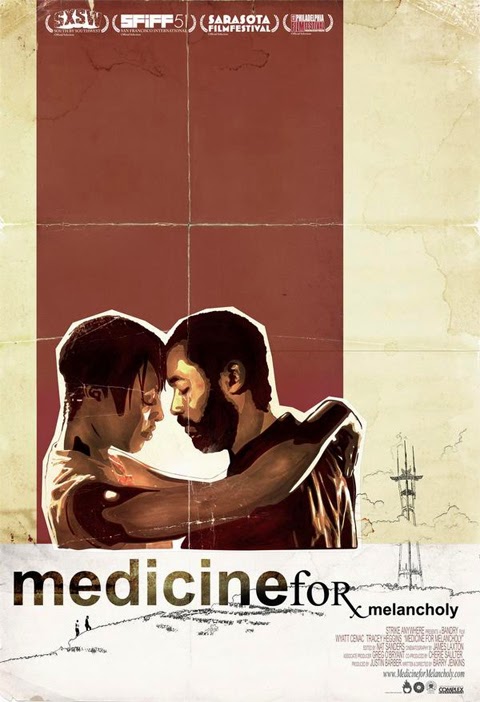Recently, I took a break from my genre reading and started reading a book I should have read years ago: Black Like Me.
I know you’ve heard of it. It’s about a white man who lived for six weeks as a black man in the South. I haven’t finished it yet, but my god, is it ever harrowing.
It should be required reading for any human: black, white, yellow, brown, red, whatever.
It got me thinking about “The Black Experience.” What does that mean in this day and age?
It’s obviously not like it was in 1959 when John Howard Griffin darkened his skin and walked into Hell. It’s still unfortunately not up to par, though. In fact, it’s still downright dangerous to have dark skin in our world. I can’t state enough how horrible that fact is.
I won’t say that either of these movies fully portray what it’s like to be a black man in today’s society. They aren’t necessarily trying to.
But they are both made by very talented black filmmakers and show a few different sides to the issue, one head on (and a bit heavy-handedly, honestly) and the other in a slightly lighter way.
BAMBOOZLED (2000)
Written and directed by Spike Lee
We’ll start with one of the more heavy-handed joints in Spike Lee’s filmography. I liked it a lot, but I’ll totally agree with some of it’s critics.
Pierre Delacroix (Damon Wayans) is a studio exec whose career is on the line. If he doesn’t come up with a “black-centric” hit soon, he could be fired. The problem is that his boss (Michael Rapaport) is a racist idiot who thinks he’s more black then Pierre. Every idea that Pierre comes to him with is turned down because it’s too normal.
That’s when Pierre decides that it’s time to get fired. He comes up with an over the top minstrel show for the new millennium. He hires the two homeless guys (Savion Glover and Tommy Davidson) who perform in front of his building to be the stars. They put on blackface and do the shuck and jive.
Sadly, it’s a hit. It’s huge. It makes a star of everyone involved. And it pisses off a lot of people, so much that they’re willing to use violence to end the show.
Bamboozled is more than you bargained for. It’s hard to watch. It’s over the top. It’s loud. It’s in your face. It’s everything that’s needed to wake people up. And, unfortunately, it was buried by the studio and only released in a few theatres across the nation. It’s a good film, even though it kind of beats you over the head with its point. Unfortunately, that’s what’s needed sometimes to get the point into thick skulls.
The best thing about it, though, is that it uses the history of racism to show what the future will be if things aren’t allowed to get better. We’re just going to keep repeating ourselves and making things worse.
MEDICINE FOR MELANCHOLY (2008)
Written and directed by Barry Jenkins
Micah (Wyatt Cenac) is a black man in a white town. San Francisco, while not a “racist” city, is overwhelmingly white and Micah knows it. But, being a hipster, he’s part of the whitest culture of our time.
One night after a party, he hooks up with Jo (Tracey Heggins), a young black woman who is in a long-distance relationship. The two part ways, but are brought back together by a forgotten wallet.
They end up spending the day together walking around San Francisco, talking about gentrification and being black in a town that supposedly “doesn’t see color.” Micah is against Jo’s interracial relationship and Jo thinks that Micah has too many hang-ups about being black.
The two connect on a lot more levels than they think they would and we get a good look into the psyche of young black people in America today. We also get a good look at the beauty that is San Francisco. It’s obvious that Micah (and Jenkins) love the city, but he also has a lot of problems with the way it’s going. It’s the same love-hate relationship I have with my hometown. Austin in amazing, but it’s changing in ways that I can’t stand. But I know it has to change to keep moving forward. But I hate it.
Medicine For Melancholy is a great film that rises above it’s “mumblecore” roots.
Neither of these films defines the experience in quite the way that something like Black Like Me does, but they show what these two individuals (Lee and Jenkins) have experienced in their times. Being torn not just between the past and the present, but between their own conflicts of what it means to be black in their own communities and cultures.











































































































